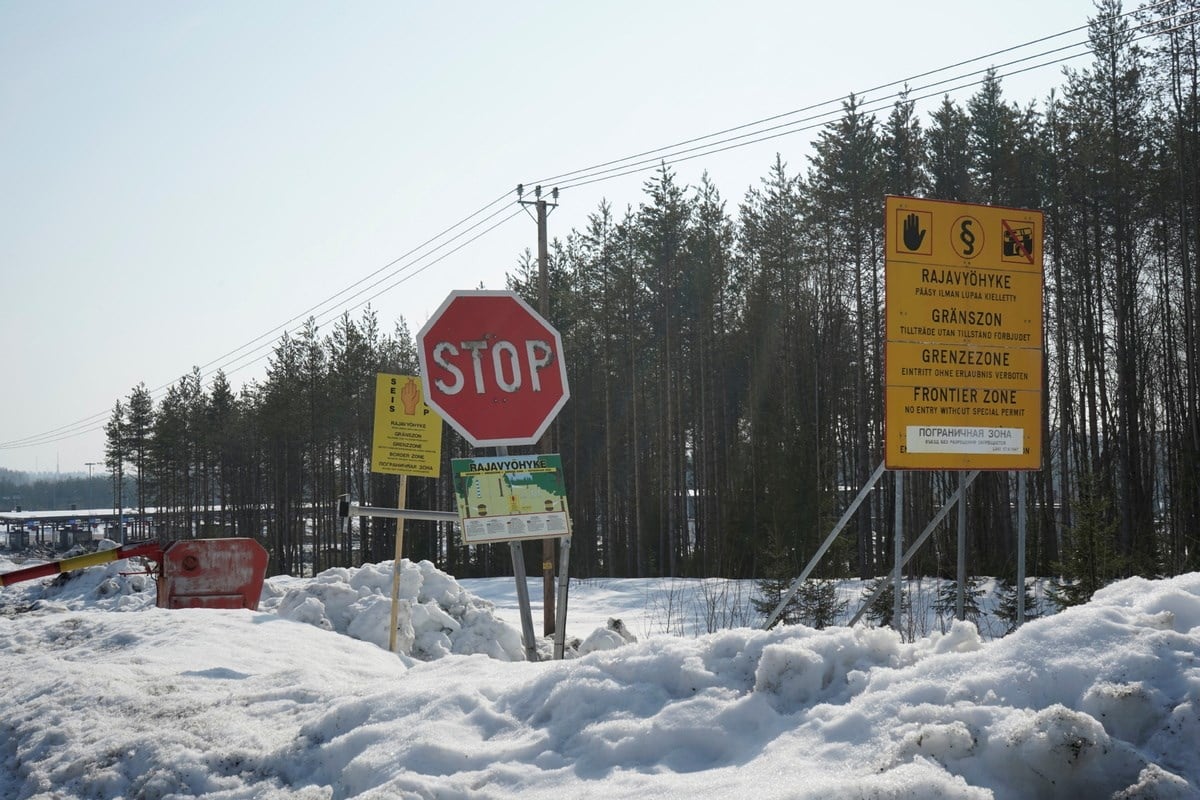Finland develops mechanism to slow issuance of visas for Russians
As part of the EU's campaign to further pressure Russia, Finland plans to halt the issuance of tourist visas to Russian citizens.
-

Road signs are seen at the Imatra border crossing with Russia, amid war in Ukraine, in Imatra, Finland March 23, 2022 (REUTERS/Essi Lehto/File Photo)
Finland has developed a mechanism to slow down the issuance of tourist visas to Russians by reducing the number of days for accepting applications, Finnish Foreign Minister Pekka Haavisto said on Saturday.
"In practice, this could mean that you can apply for a tourist visa on Monday, and from Tuesday to Friday you can apply for a visa for family reasons, study, work or other compelling reasons," Haavisto told Finnish broadcaster MTV3.
This measure, which can easily be implemented at the national level, would help Helsinki to considerably slow down the issuance of tourist visas to Russian citizens, the foreign minister added.
The number of Schengen visas issued by Finland in Russia has decreased significantly in recent months. Last month, Finland received about 17,200 applications from Russians, but the department has refused to name the percentage of visa refusals.
In the pre-pandemic year of 2019, Russians filed 786,407 visa applications at Finnish consulates, of which only 0.7% were rejected on average, according to the Finnish foreign ministry.
On July 15, Moscow lifted COVID-19 restrictions on movement along the land border, sparking the interest of Russians in Schengen visas issued by Helsinki. The resumption of tourist flows amid the events in and around Ukraine has made Finland doubt the appropriateness of the presence of Russian tourists in the country and the EU. Currently, the Finnish government is discussing ways to limit the arrival of Russians to the state.
Read more: Estonia looks to ban Russian citizens from Europe
As people around the world watch the war unfold in Ukraine, many are left asking: "What can I do to stop it?" Following in the footsteps of state sanctions, the answer provided by politicians and official organizations has been: to exclude Russians from international events, ban Russian products, boycott Russian businesses, and lately - to ban them from entering the EU.
A wave of such actions has swept the globe targeting everything made by Russians or in Russia. Following close behind has been a wave of vandalism, harassment, and bullying against average Russians, people of Russian descent, or anyone vaguely associated with Russia.
These xenophobic hate crimes are the logical conclusion of the boycotts that treat every Russian as an enemy, and boycotts and discrimination that will not help to end the war.
Read more: Russian tourists welcome, sanction requests are not: Georgia

 3 Min Read
3 Min Read








